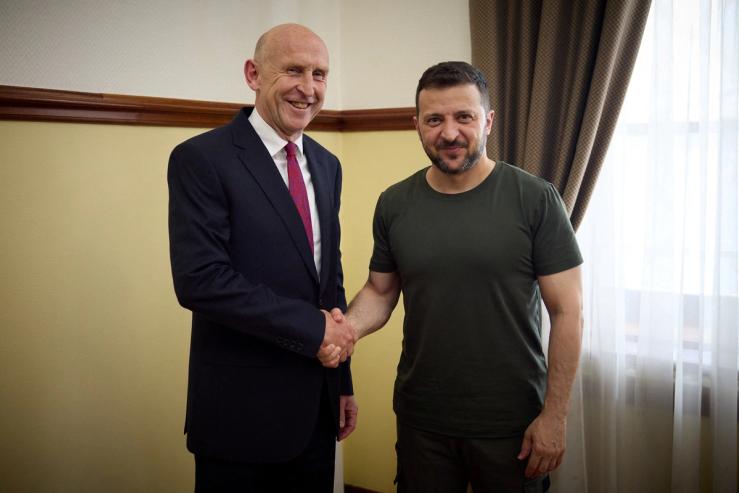The News
Just days after securing a landslide victory in the general election, Britain’s new prime minister, Keir Starmer, will make his first appearance on the world stage Tuesday night at a NATO summit in Washington, D.C.
Soon after, he will host around 50 European leaders for a European Political Community meeting at Blenheim Palace — an event where UK foreign secretary David Lammy, who has called for a “reset” with Europe — said “the new spirit of cooperation will be on show.”
SIGNALS
Starmer will continue UK’s support for Ukraine, but country could lag on defense spending
The UK’s new defense secretary vowed to honor the country’s multi-year military aid settlement with Ukraine, and Starmer will likely reassure his NATO counterparts on the UK’s broader commitment to the country, a senior EU official told Politico. But Labour’s self-imposed fiscal rules mean it is yet to set a date for increasing the UK’s spending on NATO defense from 2% to 2.5% as a percentage of GDP, the outlet noted, which has become more of a sticking point following Russia’s deadliest airstrikes on Ukraine in months. A former UK army chief told the Times of London that the figure needed to be “closer to 3 per cent.”
Britain has something to offer the EU, too
The European Political Community, which Starmer is set to host, is a forum that lends itself more to symbolism and tone-setting than concrete deliverables, two experts argued for think tank UK in a Changing Europe. But Labour “shouldn’t be deterred” by often frosty EU officials on improving Britain’s trading relationship with the bloc, Charles Grant, the director of the Centre for European Reform argued. While some in the EU will inevitably accuse Starmer of “cherry picking” access to the single market, which he has ruled out rejoining, the reality is that the EU “wants to pick a few cherries of its own” in the form of UK fisheries and mobility schemes for British youth, Grant added.
Labour’s approach to China should avoid stabilization, expert argues
Starmer has vowed to launch an “audit” of Britain’s China policy within 100 days, but it “would be unrealistic” to frame his approach to Beijing in terms of stabilizing relations, a Foreign Policy columnist argued. Middle powers like the UK cannot resolve major geopolitical issues like Taiwan or China’s support of Russia alone, he wrote, but the UK and China could find other areas of cooperation, especially in AI governance, climate, and the digital economy, one expert told the South China Morning Post. The UK government must acknowledge that Beijing’s diplomacy is based on a “confluence of interests,” not shared values like those of the UK and US, an Asia expert argued for Chatham House.



